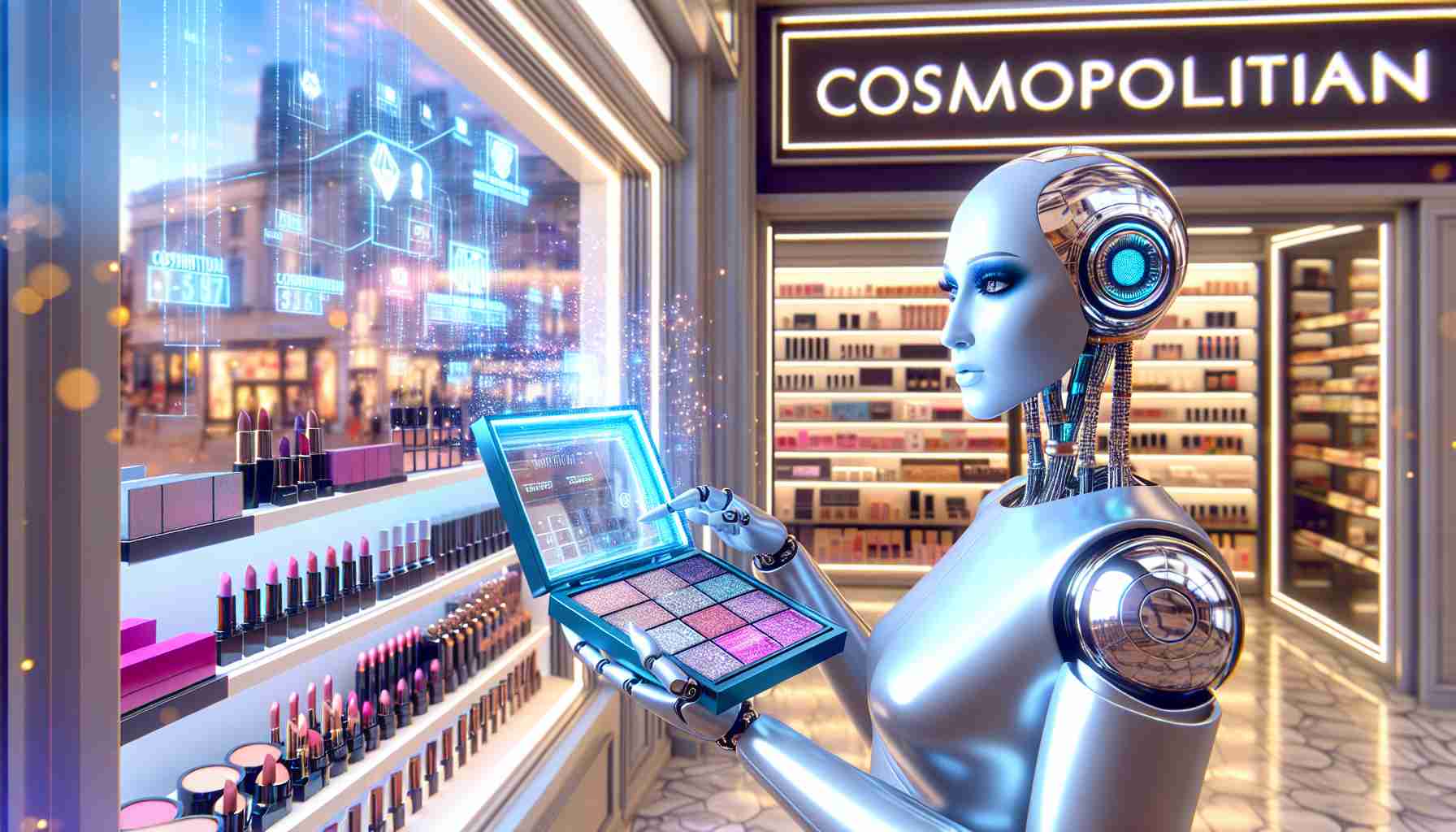L’Oréal, the global beauty leader, is embarking on a revolutionary journey by collaborating with IBM to harness the power of generative artificial intelligence. This innovative partnership aims to create sustainable beauty products through the identification of eco-friendly raw materials, while also minimizing energy consumption and reducing waste.
According to IBM, this initiative represents a groundbreaking step in the beauty industry, merging advancements in AI, chemistry, and technology. L’Oréal’s new AI infrastructure will leverage extensive datasets to enhance various processes, including the development of new cosmetic formulations, the revamping of existing products, and scaling up production capabilities.
In addition, IBM Consulting will collaborate with L’Oréal to fundamentally transform their approach to product formulation. This pioneering technology is designed not only to promote sustainability but also to cater to consumer demand for inclusivity and responsible beauty choices.
L’Oréal’s journey into artificial intelligence began in 2019 with the launch of Vichy SkinConsultAI, the first AI-driven skin diagnostic tool, which allows users to analyze their skin conditions based on selfies. Building on this success, they introduced Perso at the Consumer Electronics Show in 2020, an advanced beauty device utilizing AI for personalized skincare recommendations.
As generative AI continues to reshape various sectors, from cosmetics to pharmaceuticals, the collaboration between L’Oréal and IBM seeks to set a new standard in beauty innovation.
Transforming Beauty for a Sustainable Future
The collaboration between L’Oréal and IBM marks a pivotal moment in the intersection of technology and beauty, with consequences that extend far beyond the cosmetics counter. As sustainable practices become paramount in today’s climate-conscious society, this partnership signifies a shift toward greater responsibility in product development. By utilizing generative AI to identify eco-friendly raw materials, L’Oréal is not only responding to consumer demand but is also positioning itself as a leader in sustainable innovation.
The long-term implications of this initiative could resonate throughout the global economy, influencing how brands in various sectors prioritize sustainability. Companies may feel pressured to adopt similar AI-driven methodologies, reshaping production lines across multiple industries. The potential for AI to reduce waste and optimize resource use can catalyze a larger movement toward environmentally sustainable practices, while concurrently enhancing product effectiveness and personal consumer experience.
Moreover, the environmental benefits cannot be overstated. The improvement in energy efficiency and reduction in carbon footprints associated with AI-enhanced production processes support a larger narrative of environmental stewardship. As more companies integrate such technologies, the cumulative impact could significantly lower the industry’s overall ecological footprint.
Ultimately, L’Oréal’s integration of AI signifies a transformative step towards a future where beauty is not just skin deep, but is also aligned with the values of sustainability and inclusivity sought by modern consumers. This evolution could set a new standard in beauty and beyond, cultivating an industry that is as much about care for the planet as it is about enhancing personal aesthetics.
Revolutionizing Beauty: L’Oréal and IBM’s Game-Changing AI Partnership
Introduction
L’Oréal, the global leader in the beauty industry, is making waves by teaming up with IBM to leverage generative artificial intelligence (AI) in the creation of sustainable beauty products. This innovative alliance aims to redefine the way beauty products are formulated, produced, and delivered, emphasizing sustainability and eco-friendliness.
Features of the L’Oréal and IBM Collaboration
1. Sustainable Product Development:
– The partnership seeks to identify eco-friendly raw materials, crucial for developing products that are both effective and environmentally friendly.
– Efforts are being made to minimize energy consumption and waste during production processes, aligning with global sustainability goals.
2. Advanced AI Capabilities:
– IBM’s expertise in AI will enhance L’Oréal’s product development processes by utilizing vast datasets. This includes improving the formulation of new cosmetics and optimizing existing product lines.
– The AI infrastructure will enable heightened scalability in production, allowing for a more agile response to market demand.
3. Inclusivity and Consumer Responsiveness:
– The collaboration also aims to emphasize inclusivity, catering to diverse consumer needs and preferences in the beauty sector.
Use Cases of Generative AI in Beauty
– Skin Diagnostics: Building on previous innovations like the Vichy SkinConsultAI, L’Oréal is using AI to analyze skin conditions, providing personalized skincare solutions that cater to individual needs.
– Personalized Recommendations: Devices like Perso utilize AI to offer tailored skincare regimens, encouraging consumers to embrace products that are specifically suited for them.
Pros and Cons
Pros:
– Sustainability: Pioneering eco-conscious products could significantly reduce the environmental impact of the beauty industry.
– Personalization: Enhanced consumer satisfaction through tailored beauty solutions.
Cons:
– Implementation Challenges: Integration of advanced AI systems may present challenges, including data management and the need for skilled personnel.
– Consumer Trust: There may be skepticism around AI-driven processes, necessitating transparency and education.
Market Trends and Innovations
The beauty industry is poised for a shift as AI technologies become more prevalent. Organizations are increasingly recognizing the need for responsible beauty practices, responding to consumer demand for both innovation and sustainability.
Security Aspects
With the integration of AI comes the need for robust data security measures. Companies must ensure that consumer data is protected throughout the product development process to maintain trust and compliance with regulations.
Sustainability Predictions
The collaboration between L’Oréal and IBM is likely to inspire other beauty brands to adopt similar practices, setting a new benchmark for sustainable beauty. Future innovations may integrate blockchain technology for transparency in sourcing and production processes.
Conclusion
The partnership between L’Oréal and IBM is a significant step towards combining technology with beauty in a responsible and sustainable manner. As generative AI continues to evolve, it holds the potential to revolutionize the industry, catering to the growing consumer demand for personalized, eco-friendly, and inclusive beauty products.
For more on L’Oréal’s innovations, visit L’Oréal.
